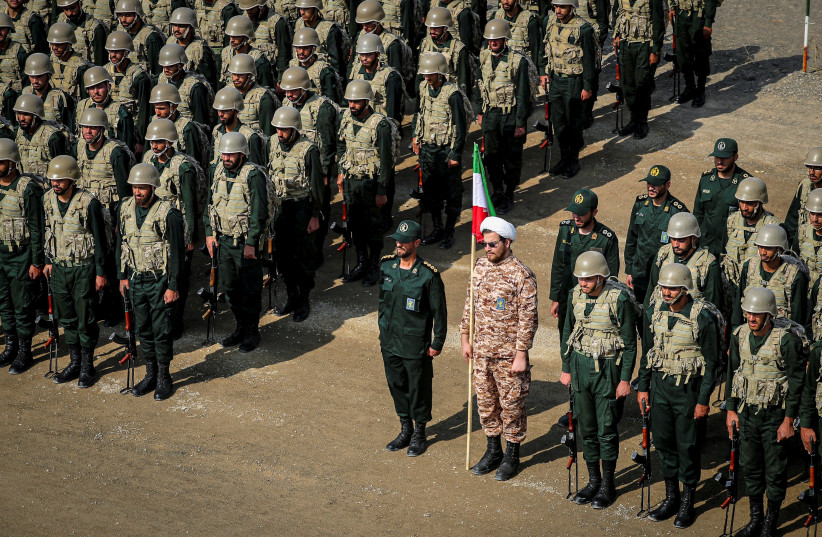The assassination of Abbas Nilforoushan, deputy commander of Iran's Islamic Revolutionary Guards Corps, was a hefty blow to the Islamic regime in Tehran, as well as its regional proxies, Benny Sabti, an Iran researcher at the Institute for National Security Studies (INSS), said in a Tuesday interview with Maariv.
Nilforoushan was also the commander of the Quds Force in Lebanon, and was eliminated along with former Hezbollah chief Hassan Nasrallah in Dahieh, Beirut.
Sabti began by saying, "This man was the head of operations in the Revolutionary Guards, and many missions, supplies, and budgets passed through his hands. The man was primarily responsible for everything that concerns us, approving budgets and transferring weapons to Syria and Lebanon, and indeed for maintaining all the activities of Hezbollah and other terrorist organizations that operate mainly through connections with Syria."
Sabti noted that Nilforoushan "has been known to the system for many years. It's not that he suddenly appeared like this, but the media usually hears when something happens."
"He was one of the extremists. He was 14 when the revolution in Iran took place, and at that age, he enlisted in the Iran-Iraq war. He came from an extreme place and a very extreme city. The background in Iran is very important; when you grow up in an extreme environment, that's how you continue your path," he added.

Regarding Nilforoushan's activities, Sabti said, "In recent years, in his role as head of operations, he contributed to Hezbollah's anti-Israeli activities because he dealt with the approvals. He essentially had a hand in everything that happened in the Revolutionary Guards."
It will take time to replace Nilforoushan
"The Iranians are very resourceful," Sabti explained, "A person who is both resourceful and very veteran is very important in Iran, like Soleimani - a person who knows how to conduct an operation with three phone calls that even thirty others wouldn't succeed in doing."
"The significance of the assassination is a very hard blow for both the Revolutionary Guards and the entire Iranian axis, with its proxies. The seniority, experience, opening doors, resourcefulness, and quick approvals from high ranks. All of this will be missed by them. It's always said in the media, 'eliminate one and another will come' - it's not like that at all. It will take a lot of time until they find someone to fill his shoes." Sabti emphasized.
"I think for the first time, we've hit all of the Revolutionary Guards. It's something no one has said," he concluded.
